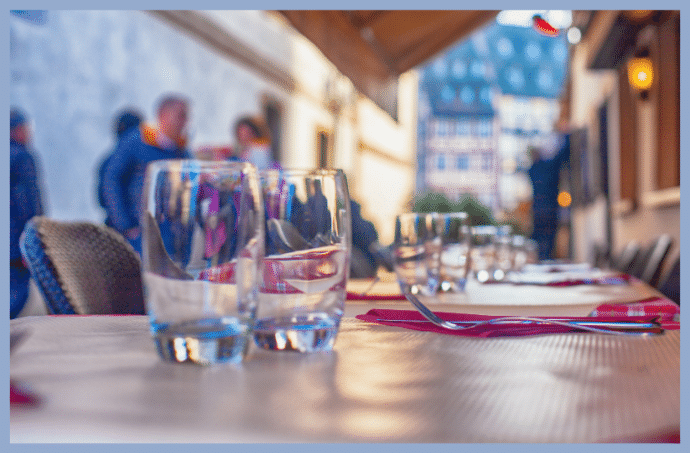
Winter is Coming, and Colorado Restaurants Innovate
Few businesses have been hit as hard as restaurants by the pandemic, and the winter months in Colorado will bring new challenges. Governor Jared Polis and state and local officials are determined to keep COVID-19 from spreading, but also must keep Colorado’s economy afloat. It’s a delicate balancing act with restaurants often caught in the middle.
Restaurants already operate with a myriad of rules governing health, sanitation, hours, and zoning as well as how they pay and manage employees. Under COVID-19, the industry must grapple with a new layer of rules that impose social distancing, mask wearing, and other public safety measures. COVID-19 restrictions likely are here to stay well into 2021. These requirements will depend on infection rates and other public health metrics in the county where your restaurant is located.
Read on for guidance to restaurants navigating COVID-19 as we head into the winter months.
Outdoor Dining Continues this Winter
Outdoor dining has been a temporary lifeline for restaurants this summer and fall as many have expanded onto patios, sidewalks, streets and parking lots. The Colorado Liquor Enforcement Division (LED) and many local governments are extending these outdoor permitting programs into 2021. For the colder season ahead, restaurants should consult the Colorado Department of Public Health and Environment (CDPHE) requirements for outdoor dining structures. Under CDPHE rules, these temporary structures must be safely configured and still provide for airflow that minimizes the spread of COVID-19.
Generally, an outdoor structure that has three or four walls is considered indoor and must follow indoor dining rules. Whether a structure has a roof makes a difference. A tunnel – two nonadjacent walls with open ends – is considered outdoors. Restaurant owners and managers should review the full CDPHE guidance. There is no table limit for outdoor dining as long as the six-foot social distancing rule is observed. To remain open for business, many restaurants will experiment with pop-up structures, heaters, tents, igloos, and other creative dining experiences for the winter.
To help with added costs and design challenges for outdoor structures, the State of Colorado and partner organizations are rolling out a grant program for restaurants. Industry members should also watch for regular updates issued by Governor Polis and groups such as the Colorado Restaurant Association.
Compliance Tips for Winter
Aside from contending with colder weather for customers, restaurants must continue to comply with state and local public health orders regarding COVID-19. Certain requirements are applicable statewide — such as mandated mask wearing for all customers unless seated at their tables. Other mandates – such as last call times for alcohol sales – will depend on the local county where your restaurant is located.
Similarly, indoor capacity limits are based on your specific county’s COVID-19 safety level as published on the CDPHE statewide dashboard, linked above. The CDPHE dashboard is updated each day, requiring restaurants to be vigilant to catch any changes impacting their business.
Based on fact-specific circumstances, state and local officials have closed bars and restaurants, disciplined liquor licenses and issued penalties for COVID-19 violations. To avoid potential enforcement action, restaurant owners and managers should closely review the current CDPHE requirements. Finally, be sure to consistently monitor new orders from Governor Polis, CDPHE and local governments and health agencies.
Legislative Solutions and Economic Recovery
With the Colorado General Assembly’s legislative session opening in January 2021, industry members hope to see efforts to make it easier for restaurants and bars to serve their customers and help spur economic recovery. For one recent example, local governments are tackling the fees charged to restaurants by third-party delivery services such as UberEats, Grubhub, DoorDash, and Postmates. In October 2020, Denver City Council passed legislation limiting food delivery fees to 15 percent of the bill, and also forbade the companies from garnishing any part of drivers’ tips to make up the difference. Versions of this legislation could emerge at the state level or in other cities.
Additional legislative topics in early 2021 could include changes to LED licensing programs and business fees, outdoor “modifications of premises” of liquor licenses, reconsideration of last call times for alcohol sales, and changes to alcohol carry-out and delivery rules. Further, the restaurant industry should closely watch potential bills affecting Colorado businesses such as financial relief programs, employment law and paid-leave changes, insurance coverage, liability protections, minimum wage increases, tax proposals and commercial landlord-tenant rights.
While restaurants continue to serve customers, employ workers and keep their businesses open during the winter, state and local governments will continually reassess the severity of the pandemic and adjust safety guidelines. Ireland Stapleton attorneys can help restaurants assess risks and advise on all rules governing their industry during the COVID-19 crisis and beyond.
This article is intended as general information and is not to be construed as legal advice. If legal advice is needed, you should consult an attorney.